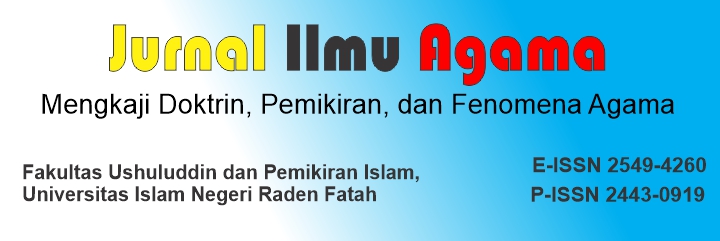Reducing Understanding of Online Gossip in the Perspective of the Qur'an: From Impact to Solution
Main Article Content
Abstract
In this era of Society 5.0, humanity is faced with a new era marked by rapid technological advancements. With the rise of social media platforms, communication between people is no longer hindered by physical distance, making it easier and more accessible than ever before. However, recent findings suggest that the prevalence of social media today is no longer primarily about education, information, or motivation, but rather about content that goes viral, specifically “online gossip.” This study aims to discuss online gossip from the perspective of the Qur'an, analyzing its impacts and potential solutions. The method used is qualitative, employing the Tafsir Maudhu'i approach with descriptive-analytical data analysis. The results and discussion reveal that the Qur’an’s perspective on online gossip stems from feelings of insecurity and a lack of gratitude for what Allah has bestowed upon humanity. The consequences of gossip are not only spiritual and otherworldly, such as the threat of punishment in the afterlife, but also cause social harm in this world. Therefore, the highly recommended solution is to engage in regular self-reflection or introspection. By recognizing that every human being is created with their own uniqueness, strengths, and weaknesses, it is hoped that individuals can refrain from the tendency to discuss others' faults. This research contributes to reducing the phenomenon of online gossip in the midst of the rapid development of the Society 5.0 era.
Article Details

This work is licensed under a Creative Commons Attribution 4.0 International License.
Authors who publish with this journal agree to the following terms:
- Authors retain copyright and grant the journal right of first publication with the work simultaneously licensed under a Creative Commons Attribution 4.0 International License that allows others to share the work with an acknowledgement of the work's authorship and initial publication in this journal.
- Authors are able to enter into separate, additional contractual arrangements for the non-exclusive distribution of the journal's published version of the work (e.g., post it to an institutional repository or publish it in a book), with an acknowledgement of its initial publication in this journal.
- Authors are permitted and encouraged to post their work online (e.g., in institutional repositories or on their website) prior to and during the submission process, as it can lead to productive exchanges, as well as earlier and greater citation of published work.
How to Cite
References
Ayu, Putri, Eko Zulfikar. "Bullying dalam Perspektif QS. Al-Hujurat Ayat 11 dan Kolerasinya dengan Netizen di Media Sosial." Ta’wiluna: Jurnal Ilmu Al-Qur'an, Tafsir dan Pemikiran Islam 5, no. 1 (2023): 1-13. https://doi.org/10.58401/takwiluna.v5i1.1273.
Fatmawati, Nurul. "Pengaruh Positif dan Negatif Media Sosial Terhadap Masyarakat." Direktorat Jenderal Kekayaan Negara, 2 November 2021. http://djkn.kemenkeu.go.id/.
Fadhil. "Haram dan Dilarang Dilakukan di Medsos Menurut MUI." Kementerian Komunikasi dan Informatika (06-2017). http://kominfo.go.id/.
Fadhil Raihan, Muhammad Reza, Esya Heryana, Fitriani, Winona Lutfiah. "Spill The Tea: Fenomena Gibah Masa Kini Perspektif Al-Qur’an (Kajian Tafsir Maudhu’i)." Jurnal Riset Agama 2, no. 1 (2022): 69-91. https://doi.org/10.15575/jra.v2i1.15658.
Gabriels, Katleen, Charlotte J.S. De Backer. "Virtual gossip: How gossip regulates moral life in virtual worlds." Computers in Human Behavior 63 (October 2016): 683-693. https://doi.org/10.1016/j.chb.2016.05.065.
Hakim, Lukman Nul, Iffatul Bayyinah. "Etika Sosial Perspektif Mufassir Nusantara: Kajian QS. Al-Hujurat Ayat 9-13 Dalam Tafsir Al-Ibriz." Al-Shamela: Journal of Quranic and Hadith Studies 1, no. 1 (2023): 70-86. https://doi.org/10.61994/alshamela.v1i1.33.
Hasanah, Uswatun, Busro Busro. "Hold Your Fingers: The Communication Ethics on WhatsApp Based on the Hadith." Jurnal Komunikasi: Malaysian Journal of Communication 39, no. 3 (2023): 239-254.
Ilmah, Mumtazah Al, Salamah Noorhidayati, Ahmad Saddad, Siti Marpuah, Husnul Amira. "Pendidikan Karakter Dalam Surah Al-Hujurat: Telaah Penafsiran Mahmud Yunus Dalam Tafsir Al-Karim." Jurnal Semiotika-Q: Kajian Ilmu al-Quran dan Tafsir 3, no. 2 (December 31, 2023): 256–272. https://doi.org/10.19109/jsq.v3i2.23189.
Izzah, Silvi Nurul. Perspektif al-Qur’an dan Hadis terhadap Maraknya Perilaku Ghibah Di Era Globalisasi. Banten: Jurnal UIN Sultan Maulana Hasanuddin, 2020.
Luthfi Riyani, Fadia. "Pengkajian Makna Gibah dalam Perspektif Hadis: Studi Takhrij dan Syarah Hadis." CATAH: Conference Article of Takhrij Al-Hadith 16 (2022): 40-49.
Maha, Lasmini. "Ghibah Virtual Dalam Media Sosial Menurut Imam Al-Qurtubi Dalam Tafsir Al-Jami’ li Ahkam Al-Qur’an." Al-I’jaz: Jurnal Kewahyuan Islam 9, no. 1 (2023): 307-319.
Munawir, Ahmad Warson. al-Munawwir: Kamus Arab Indonesia. Cet. IV. Yogyakarta: Pustaka Progresif, 1997.
Narsih, Ayu, Eko Zulfikar. "Antisipasi Berita Hoax dalam Al-Qur'an: Upaya Meminimalisir Dampak Negatif di Media Sosial." Al-Iklil: Jurnal Dirasah Al Qur'an dan Tafsir 1, no. 2 (2023): 118-129. https://doi.org/10.28926/al%20iklil.v1i2.1327.
Prawito, Agung. "Klasifikasi Karakteristik Kepribadian Manusia Berdasarkan Tipologi Hippocrates–Galenus Menggunakan Metode Naïve-Bayes." Prosiding SEMNAS INOTEK (Seminar Nasional Inovasi Teknologi) 5, no. 1 (2021): 133-140.
Poerwadarminta, WJS. Kamus Umum Bahasa Indonesia. Jakarta: PN. Balai Pustaka, 1985.
Purbatin, Wening, Palupi Soenjoto. "Fenomena Ghibah Virtual pada Komunikasi Era Milenial Menurut Perspektif Islam." ANCOMS 3, no. 1 (2019). http://proceedings.kopertais4.or.id/.
Sajadi, Dahrun. "Pendidikan Karakter Dalam Perspektif Islam." Tahdzib Al-Akhlaq: Jurnal Pendidikan Islam 2, no. 2 (2019): 1-19. https://doi.org/10.34005/tahdzib.v2i2.510.
Sifa, Layyinatus. "Ghibah Dalam Entertainment Perspektif Hadis (Aplikasi Teori Double Movement Fazlur Rahman)." Kontemplasi: Jurnal Ilmu-Ilmu Ushuluddin 7, no. 2 (2019): 282-298.
Shihab, M. Quraish. Tafsir al-Mishbah: Pesan, Kesan dan Keserasian Al-Qur’an. Vol. 15. Jakarta: Lentera Hati, 2002.
Tafsir Ringkas Kemenag RI. Al-Qur’an Digital NU Online.
Taufani, Eka M, Hasnidar Karim. "Ghibah Melalui Media Sosial dalam Identifikasi Proses Komunikasi." Islamic Education Studies: An Indonesian Journal 1, no. 1 (2018): 10-14. https://doi.org/10.30631/ies.v1i1.12.
